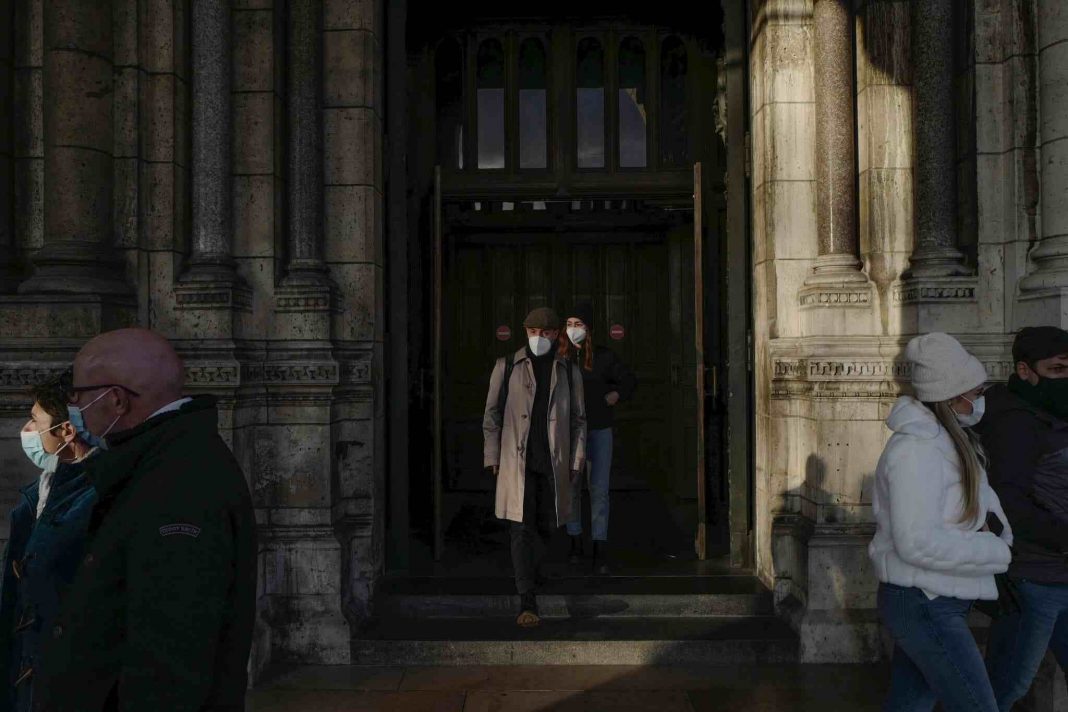As the still-mysterious Omicron variant made its way to the United States, the World Health Organization scolded wealthy countries that imposed travel bans and dismissed those that poured resources into vaccine booster campaigns while billions of people in developing countries had yet to receive their first vaccinations.
The comments by World Health Organization officials reopened contentious questions about equity in how the world has dealt with the coronavirus pandemic since a stark divide over the availability of vaccines emerged between rich and poor countries earlier this year, according to the Associated Press.
In the face of growing concerns of a new wave of Covid-19, that didn’t seem likely to dissuade leaders in Europe, Asia, and the United States, which on Wednesday announced the first confirmed Omicron case in the state of California. In order to safeguard their people against the variation, which is still relatively unknown, they are beefing up their protective measures and tightening limits on inbound travel.
Travelers responded with astonishment and dismay to news that the United States intends to tighten testing standards and screening of arriving travellers, after the announcement. That decision came after countries such as Japan, Israel, and Morocco blocked foreign visitors from entering their countries while Australia delayed closing its borders for more than two weeks.
The World Health Organization (WHO) joined its voice to the chorus of opposition, claiming that travel restrictions on countries in southern Africa were inefficient and discriminatory.
He commended Botswana and South Africa, who were responsible for the discovery of the first Omicron cases last month, for notifying international health authorities as soon as they were discovered. The fact that these nations are now being punished by others for doing the right thing, he continued, “is profoundly troubling to me.”
Further, according to other World Health Organization officials, United States and European Union bans on southern African countries would impede efforts to combat the variant because biological samples would be unable to be transported out of those countries, despite the fact that they were willing to share them. As of Wednesday, the Omicron variety has been found in two dozen nations, only six days after its discovery was announced to the public, and Dr. Tedros predicted that the number will continue to climb.
The World Health Organization (W.H.O.) has expressed concern about ambitious booster plans, which it argued would come at the price of first-time immunizations in less developed countries. The United Kingdom stated this week that it would launch a big new push to provide booster injections to all adults by the end of January. Several other European nations, along with the Biden administration, are advocating for the use of these vaccines as a first line of protection against the variation, so affording scientists more time to unravel its genetic code.
Officials from the World Health Organization, on the other hand, said there was no proof yet that boosters prevented sickness and hospitalisation in persons infected with variations. They proposed that the vaccine supply held in reserve by the United Kingdom and other nations may be put to greater use in areas where a considerable proportion of the population had not yet been immunised against disease.
The World Health Organization (W.H.O.) will establish a negotiating group to begin hammering out an international agreement that would assure a more cohesive and fair response to future outbreaks of infectious diseases. Members states would not be subject to any legal duties as a result of a weaker system, which the United States and other nations have advocated for.
In response to the emergence of Omicron, a patchwork of travel restrictions was imposed, demonstrating yet again that countries are now determined to act quickly and unilaterally to protect their populations, with little regard for how such actions might affect their neighbours or even whether the measures will achieve their stated goal.
According to her, the most important unsolved questions were the rate of transmission and whether Omicron would be able to outcompete the Delta version in order to establish itself as the virus’ dominant strain.
Several experts, including Professor Sridhar, have urged for increased global cooperation, and the World Health Organization’s drive for an international treaty is a move in that direction. Despite this, the United States, with backing from Brazil and other nations, has refused to commit to anything that is legally binding and has left the door open to the potential of a lesser deal being reached in the future.
Proponents demand assurances that data, viral samples, and technology would be shared, as well as that vaccinations will be distributed fairly to everyone. However, this presents politically delicate issues such as national sovereignty over access to outbreak locations and research into the origins of illnesses, both of which are controversial. China, for example, has rejected requests for an impartial investigation of the development of the coronavirus in the Chinese city of Wuhan in late 2019 and the subsequent spread of the virus around the world.
Despite the fact that the United States is not considering the type of total travel ban on foreign visitors that Japan has imposed, the limits being considered by the Centers for Disease Control and Prevention in the United States are causing significant alarm among the public. According to a spokeswoman on Tuesday night, the agency is contemplating asking passengers to provide proof of a negative result from a test done within 24 hours of their scheduled departure.

